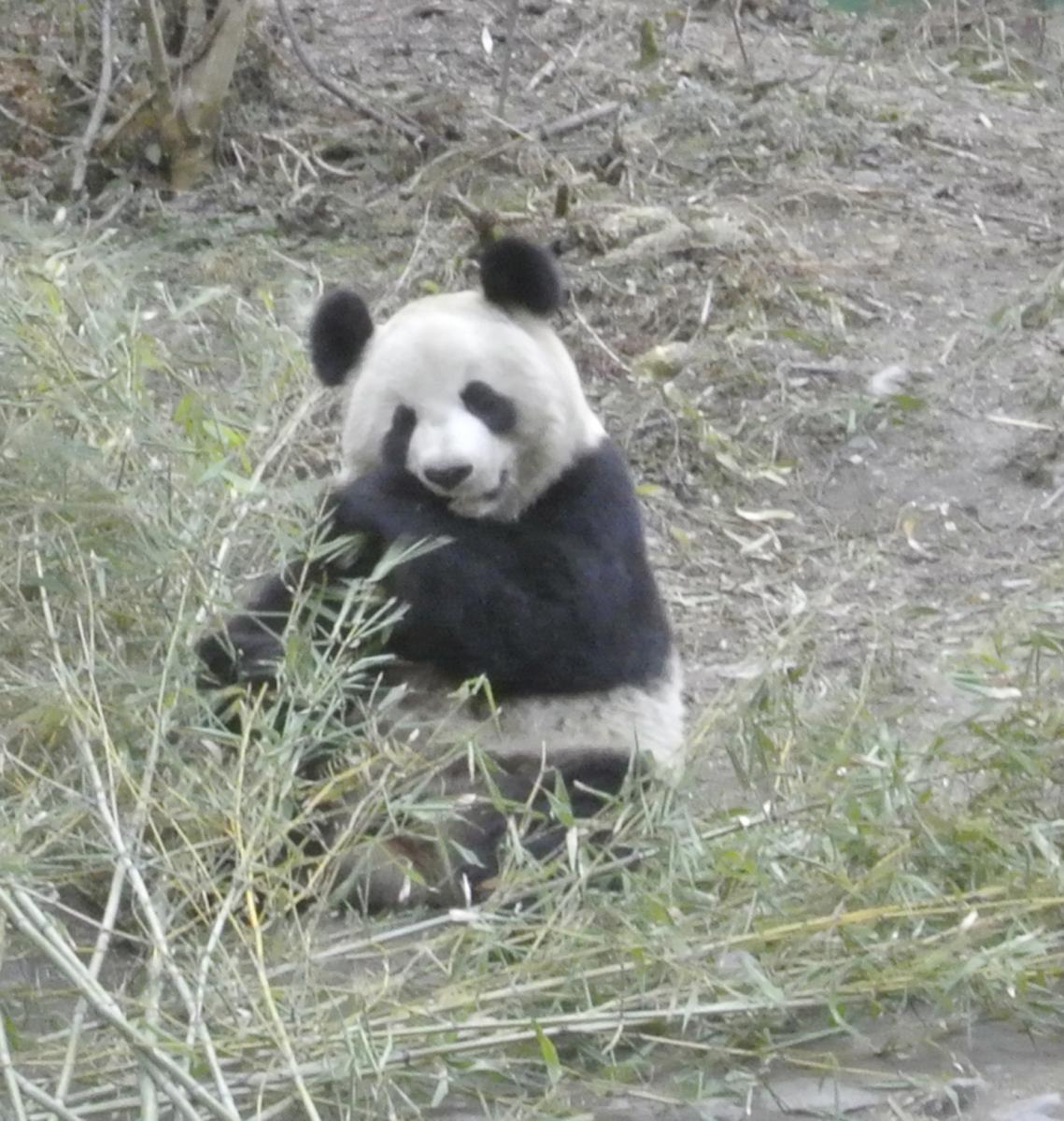Wild, endangered pandas can face stiff competition from livestock that also graze on bamboo in forests. A case in point occurred at the Wolong Nature Reserve, at Sichuan Province, China, where horses belonging to farmers had been set loose in the reserve and were found feeding on bamboo. The impact of the horses on bamboo stands was documented by Vanessa Hull and her colleagues. Their findings resulted in horses being banned from the reserve. The researchers wrote about the incident in a paper published on February 27, 2014 in the Journal of Nature Conservation.
Jianguo “Jack” Liu, of Michigan State University, said in a press release:
Across the world, people are struggling to survive in the same areas as endangered animals, and often trouble surfaces in areas we aren’t anticipating. Creating and maintaining successful conservation policy means constantly looking for breakdowns in the system. In this case, something as innocuous as a horse can be a big problem.

Pandas, the charismatic symbols of endangered wild animals worldwide, were once under dire threat of extinction due to habitat loss from timber harvesting. The Chinese government has spent billions of dollars in conservation programs to protect the approximately 1,600 remaining wild pandas that live in forest preserves.
For seven years, Vanessa Hull, a doctoral student at Michigan State University, lived on and off at the Wolong Nature Reserve studying wild pandas to better understand their behavior in the wild, and how they fed on bamboo. While observing pandas outfitted with GPS collars, she noticed horses were also feeding on the bamboo. Hull said, in the same press release:
It didn’t take particular panda expertise to know that something was amiss when we’d come upon horse-affected bamboo patches. They were in the middle of nowhere and it looked like someone had been in there with a lawn mower.
The video clip below shows a wild panda feeding on bamboo at Wolong Nature Reserve, courtesy of Michigan State University.
The horses, Hull learned, belonged to local farmers that used the animals as savings accounts. Since horses were not allowed in grazing areas designated for cattle, they were being set loose to graze in the forests. When a farmer needed funds, he would track down his horses to sell them. In 1998, there were just 25 horses in Wolong. By 2008, that number had increased dramatically to around 350.
To better understand how much the horses were impinging on the pandas’ bamboo, Hull and her colleagues placed a GPS collar on one horse in each of the four herds being studied. For a year, they tracked the horses’ activities, comparing them with those of three GPS-collared pandas in the same areas. The scientists discovered that the horses fed on bamboo and were attracted to the same gentle-sloping sunny locations favored by pandas. While individual horses and pandas ate the same quantities of bamboo, a large number of horses could potentially deplete food resources in the reserve meant for pandas.
Horses have since been banned at the Wolong Nature Reserve. But the incident is a reminder of the complexities that come with preserving endangered species in the modern world. Said, Liu, in the same press release,
Livestock affect most of the world’s biodiversity hotspots. They make up 20 percent of all of the earth’s land mammals and therefore monopolize key resources needed to maintain the Earth’s fragile ecosystems.


Bottom line: Horses were found grazing on bamboo at the Wolong Nature Reserve at Sichuan Province in China. That reserve, however, is a refuge for critically endangered pandas, and bamboo is the only food that pandas will eat. For one year, scientists tracked four herds of horses, comparing their activities with that of three adult pandas in the same area. They reported on that study in a paper published on February 27, 2014 in the Journal of Nature Conservation.











